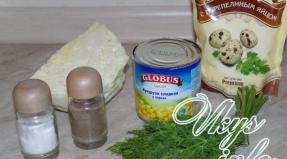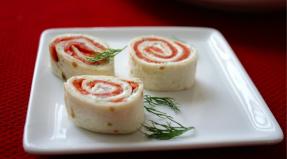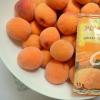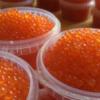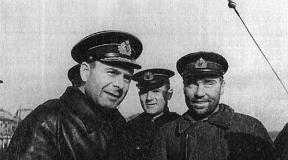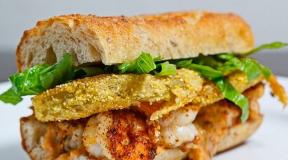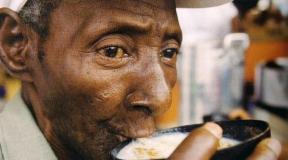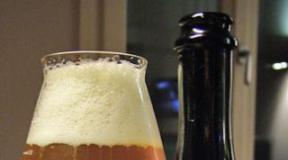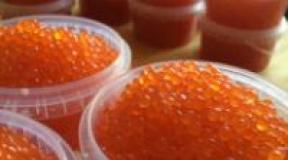June 1 ban on the sale of alcohol. The law on limiting the time of sale of alcohol passed in final reading
The main document that regulates the rules for the sale of alcohol on the territory of the Russian Federation is Federal Law No. 171-ФЗ dated November 22, 1995 "On state regulation of the production and circulation of ethyl alcohol, alcoholic and alcohol-containing products and on limiting the consumption (drinking) of alcoholic products" ...
Alcohol sales hours allowed
The period of time during which it is allowed to trade in alcoholic beverages in retail outlets is established by paragraph 5 of Article 16 of the specified regulatory legal act. This section of the law determines that retail sales of alcohol in Russia are permissible from 8 to 23 hours. Accordingly, retail sale of alcoholic beverages is prohibited in the period from 23 to 8 hours. These requirements are in effect taking into account the local time in each constituent entity of the Russian Federation.At the same time, the same section of the law on the procedure for selling alcohol emphasizes that these requirements do not apply to all types of organizations that trade in alcoholic beverages. So, these restrictions do not apply to organizations providing catering services, as well as duty-free shops, known as "-free".
At the same time, catering organizations can sell any kind of alcohol during the opening hours of their institution. If an individual entrepreneur is engaged in the provision of services in the field of public catering, during the hours of the ban on the sale of alcohol, that is, from 23 to 8 o'clock, he has the right to sell only certain types of low-alcohol drinks. In particular, beer, beer drinks, cider, poiret and mead are included in the permitted list, given in the same paragraph 5 of article 16 of the law on the sale of alcohol.
Additional restrictions on the sale of alcohol
When planning, for example, to organize a point for the retail sale of alcoholic beverages, it is necessary to take into account the additional provisions fixed in paragraph 5 of article 16 of the law on the sale of alcohol. In particular, it grants the authorities of the constituent entities of the Russian Federation the right to establish their own restrictions on the retail sale of alcohol, which do not contradict the federal law. Such restrictions may apply to the time, place and conditions of the sale of alcoholic beverages. At the same time, additional conditions can be as stringent as you like, up to a complete ban on the sale of alcohol. Therefore, before taking any steps towards organizing a business in this area, it is necessary to familiarize yourself with local legislation.To reduce the level of crime, the Russian Federation has provided for a number of provisions in the legislation, according to which the time for selling alcohol is strictly limited. According to statistics, the Russian Federation joins the top ten countries, where the volume of alcohol per capita is quite high. Since ethyl alcohol negatively affects the state of the central nervous system, it is recommended to buy it in strictly limited quantities and for a certain time. Such restrictions significantly reduce the crime rate in the country, but many retailers of alcoholic products are not happy with them.
The ban on the sale of alcohol and the sale of alcohol comes into force after 23.00 (weekdays), and ends at exactly 8.00 in the morning. Such restrictions apply throughout the territory of the Russian Federation, and are supported by officially applicable legislation. This is reported by Article 16, Clause 5, Art. 16 of Law No. 171-FZ, which is used by special services to catch illegal citizens.
It is important to note that the ban on the sale of alcoholic beverages has its own regional characteristics. Despite the fact that the official time of the end of sales is 23.00, as, for example, in the Moscow region, some regions have slightly changed these time limits. For example, in Samara, the sale of alcoholic beverages stops at 22.00, the same rule applies to the entire Autonomous Republic of Crimea. Such restrictions at night also apply in other Russian cities, and were adopted at the legislative assembly of self-government bodies.
Restrictions apply not only to strong drinks, but not to non-alcoholic beer. The ban on the sale of alcohol also extends to the morning hours: if in the Moscow region the points lift the ban already at 8 am, then the sales of Samara are possible only from 10 am.
Our regular reader shared an effective method that saved her husband from ALCOHOLISM. It seemed that nothing would help, there were several codings, treatment at the dispensary, nothing helped. An effective method, which was recommended by Elena Malysheva, helped. EFFECTIVE METHOD
If the ban on the sale of alcohol is violated, the entrepreneur will face administrative liability, and the amount of the imposed fine can reach several tens of thousands of rubles. Therefore, representatives of the law strongly recommend not to violate generally accepted procedures, otherwise the restrictions affect the further conduct of business.
Take a short survey and get a free Drinking Culture brochure.
What kind of alcoholic drinks do you drink most often?
How often do you drink alcohol?
Do you have a desire to "get drunk" the next day after taking alcoholic beverages?
What system do you think alcohol has the greatest negative impact on?
In your opinion, are the measures taken by the government to restrict the sale of alcohol sufficient?

In crowded places, the ban on the sale of alcoholic beverages has stricter restrictions. This is necessary to reduce crime, to protect the civilian population from the harmful effects of ethyl alcohol.
Alcoholic drinks in cafes and restaurants
The sale of alcohol in entertainment establishments also has its own time limits. Only cafes and bars with a valid license obtained from the relevant authorities can sell alcoholic beverages. It can be vodka, wine, cognac, beer and other alcohol, which contains an increased degree of strength.
Penalties
As mentioned above, there are certain hours when the government allows the sale of alcoholic beverages to persons over the age of 18. It is forbidden to organize trade after 23:00, and the fine for an unscrupulous entrepreneur ranges from 5,000 to 15,000 rubles for private entrepreneurs. When it comes to production, the size of the sanctions increases markedly to 50,000 - 100,000 rubles. Therefore, it is very unprofitable to sell alcohol until 8 o'clock, it is dangerous with extremely unpleasant consequences.

Useful information
Each region and its governor stipulates a time frame until when alcohol can be sold on weekdays and holidays, night and daytime. Most often it is 23 or 22.00 at night, 8-11 am - the period when the sale of alcoholic beverages is strictly prohibited.
Separately, it should be said that alcohol until 23 o'clock is not always allowed for sale on holidays. For example, it is recommended to remember 2013 and the Vladimir region. It was then that the local governor, on New Year's Eve, categorically banned the sale of alcoholic beverages with a strength higher than 16.5%. How long did this time last? A couple of days, but this period is quite enough to reduce the crime rate on the city streets. Inherent restrictions are common in modern society, especially if traditional and often drunken holidays are approaching. Of course, you can violate this rule, but a fine for prohibited trade is up to 50,000 rubles from a point, in addition to everything else, it may be suddenly closed.
The harm of alcohol
Everyone knows that alcohol abuse is fatal if you do not know when to stop or drink a low-quality product. You can never recover from alcohol intoxication, as there are many examples of this in medical practice.
The Ministry of Health warns which drinks can be drunk and which ones it is important to categorically refrain from. Alcohol under the age of 18 is generally prohibited, although, judging by the statistics in the Russian Federation, teenage alcoholism is flourishing. The crime rate is also growing, for which the state of alcoholic intoxication is a habitual phenomenon. So modern society definitely needs legislative restrictions, a ban on the sale of alcohol on holidays and at night.
According to law 171-FZ, since 2012, the sale of alcohol in retail outlets is carried out only from 8 to 23 hours. At night, it is completely prohibited, and this prohibition covers not only strong drinks such as vodka, cognac, wine, but also a variety of liqueurs, beer and low-alcohol products. The same law determines the right of local authorities to establish more stringent ones (they cannot be mitigated in any case).
What is the situation with the sale of alcohol in Moscow? This question will be answered by our article, which provides not only time limits for the sale of alcohol, but also other useful information. From it you will learn about the exceptional establishments where you can buy strong drinks at any time of the day, as well as about the outlets that are subject to the strictest ban on the sale of alcohol.
At what time should the sale of alcohol stop in Moscow
If you are interested in until what time the sale of strong drinks in Moscow can be carried out, then we are ready to inform you that today the whole capital lives according to the rules generally accepted in the country. That is, you can buy alcohol only until 23 o'clock. This rule applies exclusively to retail chains - shops, supermarket chains and other retail outlets.
An exception to the rule is establishments that, even if formally, still belong to public catering establishments. These are restaurants and beer pubs, bars and nightclubs. Here the sale of alcohol can be carried out at any time of the day. The main drawback is that in each of these establishments, the prices for alcohol are an order of magnitude higher than in stores. However, these are the problems of those who cannot do without strong drinks even at night, or simply did not have time to make a supply at the "permitted" time.
In connection with the aforementioned exception, a logical question arises: why was a ban on the sale of alcoholic beverages introduced in Moscow and other cities after 23:00? After all, if the state is so concerned about the health of its citizens, then it was obliged to do without any exceptions. If at night you can buy the same vodka at a clearly inflated price, then we are talking only about filling the city budget and the pocket of the restaurant owner.
In addition, an exception in Moscow is the retail outlets operating at the airports - the so-called duty-free shops. The sale of strong drinks in them can be carried out at any time, including at night. However, only passengers with tickets for this or that flight have the right to purchase alcohol here.
All other outlets, as mentioned earlier, are subject to Law 171-FZ and are simply required to stop selling alcoholic beverages from 23:00 to eight in the morning.
Complete ban on the sale of alcohol
The current legislation also establishes a list of places both in Moscow and in other cities of the country in which the sale of alcohol is completely prohibited at any time of the day or night. These include:
- military installations, as well as territories located in the immediate vicinity of them;
- at bus stations, railway stations, airports, and other places. The only exceptions are the bars and restaurants operating on the territory of these facilities, duty-free shops "duty-free", which we mentioned above;
- retail outlets located near schools and other childcare facilities;
- stadiums and other sports facilities;
- in theaters and cinemas, in other cultural institutions. For buffets located on the territory of these facilities, again, an exception has been made;
- in tents and stalls, which are small architectural forms and do not belong to stationary retail outlets.
Federal law imposes restrictions on the sale of alcohol during the established hours of the day and night. The authorities of the subjects are empowered to tighten the procedure for the sale of alcoholic beverages, up to a complete ban on specific days and in certain territories. So, the time of sale of alcohol in St. Petersburg and the Leningrad region, as well as other rules related to this area, are determined by local legislation.
We will tell you in more detail how long and how long alcohol is sold in St. Petersburg in 2018 and 2019, what rules are in effect in the neighboring Leningrad region, how the rules will change during the World Cup.
State control over the circulation of alcoholic beverages
Relations in the sphere of alcohol turnover - from the manufacturing process to production and sale - are regulated by Federal Law No. 171-FZ "On state regulation of the production and circulation of ethyl alcohol, alcoholic and alcohol-containing products and on limiting the consumption (drinking) of alcoholic products" dated 22.11.1995.
Article 2 specifies which products are classified as alcoholic:
- strong alcohol - vodka, cognac, whiskey;
- wines (sparkling, liqueur, apple and all fruit);
- beer and cider, mead, etc. made on its basis;
- other goods containing from 0.5% ethyl alcohol per volume of the finished product.
The time period during which the sale of alcohol is not allowed is spelled out in article 16: the ban is in effect throughout Russia. from 23.00 to 08.00 by local time. On holidays, including New Year's Eve, concessions are not provided.
Compliance with this rule does not affect:
- restaurants, bars and similar establishments;
- Duty Free shops.
The legislative body of the subject approves additional restrictive measures. The decision is confirmed by the signature of the head of the region. Consequently, the answer to the question: how much alcohol is sold in St. Petersburg contains the Law “On the turnover of alcoholic and alcohol-containing products in St. Petersburg”.

What hours is the sale of alcohol prohibited in St. Petersburg?
In 2019, the time when retail chains and city shops are obliged to remove alcohol from the shelves is coming at 22.00 and lasts until 11.00 the next day... This regulation has been in effect since November 2013. Then the St. Petersburg deputies decided to adjust the time interval in which the sale of alcohol in St. Petersburg is allowed: the time in total was reduced by four hours - one hour in the afternoon and three in the first.
Restaurants and other catering establishments, as well as duty-free shops, are exempted from compliance with the rule setting the hours for the sale of alcohol in St. Petersburg. The city law lists the places where the sale of alcohol is prohibited on an ongoing basis, regardless of the time of day:
- 15 meters from kindergartens, schools, hospitals and clinics, stadiums and sports complexes, military facilities;
- at the same distance from markets (both wholesale and retail), train stations and airport buildings;
- in the spaces designated for mass events and actions;
- in places popular with townspeople and actively visited by them;
- in retail outlets that are not real estate objects registered in the USRN.
The last point was introduced on June 19, 2017, and from February 1, 2018, the territory adjacent to the St. Petersburg-Arena stadium will be added to the list. The law of St. Petersburg under number 816-147, which provides for restrictions on the sale of alcohol on football matches, was signed on December 19, 2017. The "dry law" regime in the 2-kilometer zone around the stadium on Krestovsky Island will be introduced two hours before the start of Zenit's home matches and the meetings of football teams in European competitions. The legislators explained their decision with the intention to prevent the early addiction of young people to alcohol and to protect the residents of the Primorsky and Petrogradsky districts of the city from the antics of drunk fans.
The same document prohibits the sale of alcohol on the holiday of graduates "Scarlet Sails", which is celebrated in the second half of June. On the day of honoring young citizens who graduated from St. Petersburg schools, it is not allowed to sell strong alcohol, as well as low-alcohol drinks "in glass". The St. Petersburg deputies wanted to apply a similar measure on May 25 (the corresponding proposal contained the original version of the legislative initiative), but changed their minds, and from the final version of the draft The Last Call was excluded.
What days is the sale of alcohol prohibited in the Leningrad Region in 2018-2019?
The time when the ban on the sale of alcoholic beverages begins to operate in the region adjacent to St. Petersburg is specified by the regional law on the turnover of alcohol. According to this regulatory act, the authorized time for the sale of alcohol in the Leningrad region in 2018-2019 is from 09.00 to 22.00.
Regional Law No. 33-OZ of June 19, 2017 introduced a ban on the sale of alcoholic beverages on holidays dedicated to children and youth:
- International Children's Day (June 1);
- on Youth Day (June 27);
- Knowledge Day (September 1).
Penalties for violation
Trade in alcohol at a time not established by law is considered an administrative violation (if it does not entail criminal prosecution), for which there will be a sanction - a fine. The withdrawal of products is also possible. The actual amount of the fine is specified in article 14.16 of the Administrative Code of the Russian Federation (the amount of the recovery was adjusted in the summer of 2017 by law No. 278-FZ of July 29, 2017):
- from 20,000 to 40,000 rubles will be paid by individual entrepreneurs;
- from 100,000 to 300,000 rubles - companies.
The anti-alcohol policy of the authorities is aimed at reducing the consumption of alcoholic beverages by the population. Did the restrictive measures help? The latest statements of the responsible persons contradict each other. Thus, the Minister of Health of the Russian Federation Veronika Skvortsova announced a significant reduction in the consumption of alcoholic beverages in the country in recent years - by 80%. At the same time, data from Rosalkogolregulirovanie indicate an increase in vodka sales in 2017 - by 2.45% compared to the previous year.
The federal law on the sale of alcohol (also known as 171-FZ) was adopted in Russia back in 1995. Since then, many amendments have been made to the legislative act. The latest changes took effect in the summer of 2017. In order not to find yourself in a very unpleasant situation and not to join the ranks of lawbreakers, it is better to understand all the subtleties mentioned in the document.
Reasons for Alcohol Prohibition Ordinances
Laws restricting the sale and consumption of alcoholic beverages exist in all countries. In Russia, this kind of legislative acts also exist, and they were not adopted by chance. Many people know that our country is among the world leaders in alcohol consumption, and has long become a national problem. In such a situation, there is nothing left but to take control of the problem at the state level. In this regard, it is important for persons engaged in the sale of alcoholic beverages to know what the legal framework says regarding the rules for the sale of alcohol.
It is equally important to be aware of the rules governed by the law.
Restrictions on the sale of alcoholic beverages
In order to be guided by the law competently, it is first important to understand the terminology. In particular, what is "alcoholic drink" in the opinion of the creators of the law. Article 2 of Federal Law No. 171 clearly states that all drinks containing 0.5% or more are alcoholic products. However, when it comes to the ban on the sale of alcohol, they mean only drinks with an alcohol content above 1.2%. But here it is necessary to make some clarifying remarks.
 But what the prohibitions prescribed in the law unconditionally influence on different types of wines, port wine, brandy, alcoholic liqueurs, and other alcoholic products. By the way, it is with the sale and purchase of beer that the most questions arise. Many believe that the Law does not apply to low-alcohol foam, as well as with a small proportion of ethyl alcohol. In fact, the percentage of ethanol in such products is rarely lower than 3-4%, which means that there is no reason to exclude it from the list of those subject to restrictions.
But what the prohibitions prescribed in the law unconditionally influence on different types of wines, port wine, brandy, alcoholic liqueurs, and other alcoholic products. By the way, it is with the sale and purchase of beer that the most questions arise. Many believe that the Law does not apply to low-alcohol foam, as well as with a small proportion of ethyl alcohol. In fact, the percentage of ethanol in such products is rarely lower than 3-4%, which means that there is no reason to exclude it from the list of those subject to restrictions.
Generally speaking about the most important rules, the sale of alcoholic beverages is prohibited:
- in unauthorized places;
- without a license;
- remotely;
- in polymer packaging exceeding 1.5 liters.
By the way, in 2018, not only the rules for the sale of alcohol were tightened, but also advertising of alcohol products. In particular, it is now prohibited to advertise the sale of alcohol on the Runet. For violation of the law, individuals will have to pay a fine of 3 to 5 thousand rubles, legal entities - from 100 to 300 thousand, and officials, non-compliance with the rule will cost from 25 to 40 thousand Russian rubles. In addition, according to Law 149-FZ, sites advertising alcoholic products will be blocked.
The drug "Alkobarrier"
Sale to minors
 This is one of the main points of the law on the specifics of the sale of alcohol in the Russian Federation. At all points of sale, it is unacceptable to purchase alcoholic products by persons who have not reached the age of majority, that is, 18 years old (with the exception of young people who married before the age of majority, it is considered that they are already capable of taking responsibility for themselves). Meanwhile, survey data indicate that 99% of Russian high school students have already experienced alcohol intoxication. The results of another study indicate that about a quarter of girls and a third of boys in the Russian Federation consume alcoholic beverages of various strengths almost every day. A poll among sixth graders indicated that 96% of them already know the taste of alcohol. All this suggests that in practice the law banning the sale of alcoholic beverages to children under 18 does not work as effectively as the lawmakers initially assumed. Therefore, recently in the State Duma and the Ministry of Health they started talking about raising the ban from 18 to 21 years old. By the way, a similar ban has been in effect in the United States for many years. It remains to be seen when these changes will be made to the Russian legal framework. So far, the sale of alcohol in our country is prohibited to anyone under the age of 18. For violation of the rule of the seller, who dispensed alcohol to a minor, expects a fine from 30 thousand to 50 thousand rubles, and the owner of the outlet - up to 500 thousand rubles.
This is one of the main points of the law on the specifics of the sale of alcohol in the Russian Federation. At all points of sale, it is unacceptable to purchase alcoholic products by persons who have not reached the age of majority, that is, 18 years old (with the exception of young people who married before the age of majority, it is considered that they are already capable of taking responsibility for themselves). Meanwhile, survey data indicate that 99% of Russian high school students have already experienced alcohol intoxication. The results of another study indicate that about a quarter of girls and a third of boys in the Russian Federation consume alcoholic beverages of various strengths almost every day. A poll among sixth graders indicated that 96% of them already know the taste of alcohol. All this suggests that in practice the law banning the sale of alcoholic beverages to children under 18 does not work as effectively as the lawmakers initially assumed. Therefore, recently in the State Duma and the Ministry of Health they started talking about raising the ban from 18 to 21 years old. By the way, a similar ban has been in effect in the United States for many years. It remains to be seen when these changes will be made to the Russian legal framework. So far, the sale of alcohol in our country is prohibited to anyone under the age of 18. For violation of the rule of the seller, who dispensed alcohol to a minor, expects a fine from 30 thousand to 50 thousand rubles, and the owner of the outlet - up to 500 thousand rubles.
What days is the sale of alcohol prohibited?
There are many holidays in our state calendar, which, according to the historically established national tradition, rarely do without alcohol. However, as evidenced by criminal and medical reports, it is on the holidays that many people, using too much, lose control over themselves, which often ends in tragic events. It is on holidays that some schoolchildren and students allow themselves to drink. In addition, just on holidays, people with alcohol addiction most often take a break from treatment on their own, which is why they enter the next drunken period. In order to prevent undesirable consequences, at the national legislative level, the days of a complete ban on the sale of alcohol-containing products were determined.
Children Protection Day. This holiday in the Russian Federation is celebrated every year on June 1. And it is on this day that the sale of drinks containing ethanol is suspended throughout the Federation. This is done for several reasons. First, so that the children themselves do not have the opportunity to buy alcohol. Secondly, as sociological studies show, the problems of many children who need the protection of social services arise from alcoholic parents. So it is quite logical, at least on the Day of Defense, to say "No!" To the green snake.
 Knowledge Day, also known as the First Bell or September 1st. Children at all times dream of growing up faster, seem older and try the "forbidden fruits". How many tricks do schoolchildren fail to buy beer or wine, and mark the beginning of the new school year. And to prevent such offenses from happening, the lawmakers forbade retail outlets to sell any type of alcohol on that day.
Knowledge Day, also known as the First Bell or September 1st. Children at all times dream of growing up faster, seem older and try the "forbidden fruits". How many tricks do schoolchildren fail to buy beer or wine, and mark the beginning of the new school year. And to prevent such offenses from happening, the lawmakers forbade retail outlets to sell any type of alcohol on that day.
Last call. May 25 in the Russian Federation is the day when the educational process ends in all schools. As practice shows, many schoolchildren prefer to start their summer holidays with alcoholic libations, which often end in severe poisoning. It was decided to fight this shameful phenomenon at the state level with the help of Law No. 171.
School Graduation Day. In different regions of the country, school graduations can take place at different times. However, no matter what date the celebration takes place, on this day, the sale of alcohol stops in all shops in the village. As a rule, the date of the ban on the sale of alcoholic products associated with the school graduation is approved by the regional leadership every year.
Youth Day. This holiday in our country falls on June 27. And this day in the Russian Federation, according to the legislation, also passes under the sign of a total ban on the sale of alcohol-containing products. This is one of the ways to protect the younger generation of Russians from excessive drinking and all the consequences that follow from this.
Day of sobriety. The idea of the holiday is to stop drinking alcohol, so the ban on the sale of alcoholic products on this day looks quite logical. So, any attempt to sell or buy alcohol on September 11 is punishable by a fine. As a rule, violation of the ban is punishable by a fine of up to 100 thousand rubles and confiscation of alcoholic beverages.
Alcohol sales time limit
Regarding the time allotted by the Law for the sale of alcoholic beverages, it is strictly regulated and applies to the entire territory of the Russian Federation. Regulations allow you to sell alcohol in designated areas from 8 am to 11 pm. By the way, here you should understand one small, but very important nuance from the point of view of the law. The time of the sale of alcohol is determined not by the moment when the buyer came to the store, but when the check was broken. That is, if you, being in a supermarket, put a bottle of vodka in your basket, for example, at 22:40, and came to the checkout at 23.01, you will no longer be able to make a purchase, since at that time it will already be illegal. Violation of this law provides for the seller to be liable in the form of a fine. Even for one bottle of beer sold after 23.00, the store can receive an administrative penalty in the amount of 100 thousand rubles, followed by a forced confiscation of alcohol.
 Meanwhile, it should be noted that individual subjects of the Russian Federation can, at their discretion, tighten temporary bans on the sale of alcohol. In this regard, the only exceptions are catering places, cafes and restaurants that can sell alcohol during their entire working hours.
Meanwhile, it should be noted that individual subjects of the Russian Federation can, at their discretion, tighten temporary bans on the sale of alcohol. In this regard, the only exceptions are catering places, cafes and restaurants that can sell alcohol during their entire working hours.
Places prohibited for the sale of alcoholic beverages
According to Article 16 of Federal Law No. 171, a complete ban on the sale of alcohol applies to:
- unauthorized shopping facilities;
- educational institutions and adjacent territories;
- sports facilities with adjacent territories;
- medical institutions and the territory adjacent to them;
- cultural sites;
- wholesale and retail markets;
- public transport;
- metro stations;
- railway stations, airports and public transport stops (excluding duty-free shops - Duty Free);
- gas stations;
- strategic objects, training grounds, military units, locations of troops and places in their immediate vicinity;
- locations of increased danger;
- places of mass gathering of citizens during public events (rallies, demonstrations, picketing, processions);
- public locations around and inside houses (courtyard, entrance, playground or sports ground, elevator);
- beaches, city ponds, lakes, squares, tourist centers.
The sale of alcoholic beverages in a prohibited location for individuals entails a fine of 10-15 thousand rubles. For legal entities, the penalty can be 200-300 thousand rubles with confiscation of alcoholic beverages.
 The law banning the sale of alcoholic beverages at certain times of the day or on certain days does not apply to cafes, restaurants and catering establishments. But there is one point: the purchased drink will have to be drunk only within the walls of this institution.
The law banning the sale of alcoholic beverages at certain times of the day or on certain days does not apply to cafes, restaurants and catering establishments. But there is one point: the purchased drink will have to be drunk only within the walls of this institution.
Features of the sale of alcohol in different cities of Russia
As already mentioned, on the territory of the entire Russian Federation there is a ban on the sale of alcohol from 23:00 to 8:00. Meanwhile, the Law allows the regions, at their discretion, to make this ban even more stringent. Some constituent entities of the Russian Federation have used this right and local regulations have further limited the time for selling alcohol.
For example, in the Leningrad region and St. Petersburg, according to local restrictions, the sale of alcohol begins at 11 am and stops at 10 pm. Thus, in the region, the daily sales time for alcoholic products is 4 hours shorter than provided for by federal legislation.
Slightly tightened state regulations in the Arkhangelsk, Saratov, Astrakhan regions. It was decided to start selling alcohol here no earlier than 10 am and continue until 11 pm, generally accepted in the Russian Federation.
In the Kirov region, the same restrictions apply as in Arkhangelsk: the sale of alcoholic beverages begins at 10:00 and ends until 23:00. But on weekends, residents and guests of the Kirov region can buy alcohol only for 6 hours: from 17:00 to 23:00 local time.
In the Komi Republic, although the sale of alcohol begins at national time - at 8 am, but ends an hour earlier - at 22:00. After 10 pm it is impossible to buy alcohol in Mordovia, besides, the sale of "fuel" here starts only at 11:00.
The Pskov region also decided not to rush to the start of alcohol sales: departments with "degree" drinks do not open earlier than 10 am. They also close 2 hours earlier than recommended by the Main Law - at 9 pm.
While in Moscow the sale of alcoholic beverages is carried out according to the schedule of Law No. 171, the Moscow region decided to delay the start of the alcohol trade and shifted the opening of alcoholic beverages from 8 am to 11:00 and finish their work at 21:00. The time of the legal sale of alcohol in the Tula region and Yakutia was further "cut", where a receipt for the purchase of alcohol-containing products in any store will not be punched before 14:00.
 But, perhaps, the most severe restrictions were adopted in the Chechen Republic. On this territory, alcoholic beverages can be bought only for two hours a day - from 8 to 10 in the morning. On the days of Muslim holidays, it is forbidden to sell and buy alcohol even during these hours - there is a total taboo on alcohol.
But, perhaps, the most severe restrictions were adopted in the Chechen Republic. On this territory, alcoholic beverages can be bought only for two hours a day - from 8 to 10 in the morning. On the days of Muslim holidays, it is forbidden to sell and buy alcohol even during these hours - there is a total taboo on alcohol.
In addition, in some regions of the Russian Federation, additional restrictions on the sale of alcohol apply to some dates that differ from the republican days of the ban. In the Komi Republic, for example, it is impossible to buy alcohol not only directly on Youth Day, but also on all weekends next to it. In the Ulyanovsk region, the local authorities have also expanded the list of "sober" days a year. In the region, it is punishable by law to sell alcohol, stronger than 15%, on any of the weekends available in the year (104 days), as well as on the Days of the Russian Federation (June 12) and family communication (September 12).
Where can alcohol be sold
It is possible to sell alcoholic beverages only in designated places (shops, restaurants, bars, etc.) and only with a license, as well as quality certificates for the goods. Another requirement for a retail outlet is the mandatory presence of a cash register.
The legislation clearly specifies the places where alcoholic beverages can be sold and where not. One of the main requirements concerns the area of the outlet specializing in the retail trade of alcohol. In the city, the area of a store with alcohol should not be less than 50 square meters, outside the city limits - not less than 25 squares.
For quick and reliable getting rid of alcoholism, our readers advise the drug "Alkobarrier". It is a natural remedy that blocks alcohol cravings, causing a persistent aversion to alcohol. In addition, the Alkobarrier launches recovery processes in the organs, which alcohol has begun to destroy. The tool has no contraindications, the effectiveness and safety of the drug has been proven by clinical studies at the Research Institute of Narcology.
The public's attitude to restricting the sale of alcohol was sharply divided. While some are happy to welcome any bans on the sale of alcohol, others complain that the "dry law" will push for under-the-counter sales, home brewing, and the use of contraband low-quality product. Probably, Law 171-FZ will not cure chronic alcoholics from addiction, however, the observance of the prescribed norms by society, lays a certain model of behavior among young people, shows that it is possible to rest without alcoholic libations. It is clear that prohibitions alone cannot solve the problem of alcohol abuse in the country, so the time has come to realize that the words "holiday" and "alcohol" do not have to stand together, and even more so they are not synonyms.
Read also ...
- Chicken liver pate
- Delicious zucchini with cheese in sour cream in the oven - a step by step recipe with video Zucchini recipes in the oven with sour cream
- Banana rice and corn flour pancakes (gluten free) with homemade banana sauce Banana pancakes with semolina
- Cabbage casserole with chicken Chicken fillet casserole with cabbage
